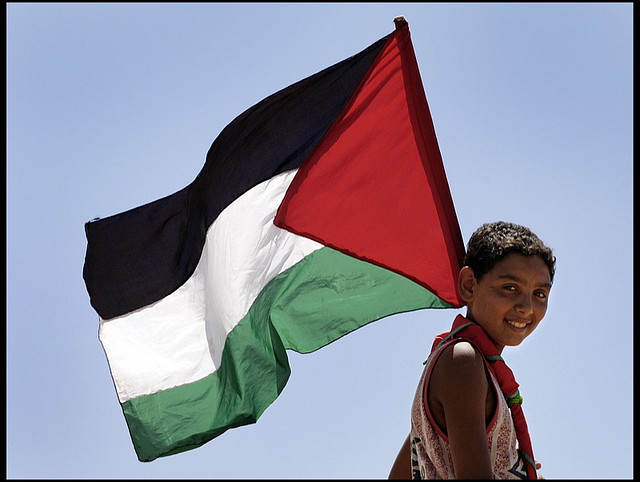People around the world twist themselves into knots figuring out where they stand and what they might say openly on the latest Israeli-Hamas clash. Yet none of it makes the slightest difference to the future of Israel and Palestine. Regardless of what I think, or what Canadian political leaders think, or even what Barack Obama thinks, the profound divisions between Israelis and Palestinians will not be resolved in our lifetime, and quite possibly not ever. The present confrontation, seen in proper perspective, is just another in the endless violent conflicts between Israelis and Arabs that began when Israel was first created as a nation 66 years ago and has never stopped: 1947-49, 1956, 1967, 1973, 1982, 1991, 2006, 2008-9, 2012, 2014. Why should they stop now — or ever?
There’s not much point in arguing about who will be most responsible for this perpetuation of a miserable status quo. We are trapped in a classical tragedy where characters cannot escape their nature, regardless of the harm they cause. Whatever outsiders think, in practical terms none of the Middle East disputants are in a position to offer the others anything like an acceptable peace deal. Or, to put it the other way, no one is likely to buy a deal the other offers. If Israel offers a certain set of proposals, both the Palestinian Authority and Hamas, not to mention even more radical Palestinian groups, are certain to find it too pro-Israel. And from their perspective they’d be right. For given the politics of Israel, no Israeli government, now or ever, would consider offering anything that wasn’t in the best interests of Israel.
In the present circumstances, for example, Hamas’s demands for stopping its shelling of Israel seem quite reasonable to many observers. How could they demand less than an end to Israel’s blockade on everything that comes in and out of Gaza, including its own people? But Hamas’s antagonism to all things Israeli, while no doubt sensible from a Palestinian point of view, make it a treacherous and untrustworthy enemy to Israel.
Realistically, it’s been many years since the possibility of a two-nation solution has had any real chance of success, though it’s still promoted by those who feel there must be some kind of resolution to the present impasse. But it’s wishful thinking. The truth is, Israel is never going to give up its control of both the West Bank and Gaza, and Palestinians are never going to be reconciled to being controlled by Israel.
We know, by international law, that Israel is illegally occupying both Gaza and the West Bank. We know that no Israeli government has ever stopped allowing Palestinian land to be appropriated for Israeli settlements. We know many settlers would fight rather than have their turf returned to the Palestinians to whom it rightly belongs. We know that Israel dominates much of the daily life, including the economy, of the two territories.
We know Palestinians resent Israeli control. What Israeli doesn’t understand this? Who can doubt that Palestinians feel humiliated by Israel’s harsh and relentless domination. Palestinians can hardly be expected to accept an offer of enduring peace that doesn’t include the surrender of Israel’s occupation, its authority, its domination. But Israelis will never accede to such demands which, they are convinced, constitute an existential threat to Israel’s very existence. And indeed it’s no stretch for Israelis to find evidence of Palestinians and other Arabs who wish to see Israel disappear entirely. But Israel will never disappear.
To repeat, unending conflict has been the consequence of the decision by the United Nations to create Israel. The war against Israel launched at the time by a coalition of Arab states was a taste of the battles that now seem inevitable, just as Israel’s ethnic cleansing of Arabs — the catastrophe known to all Palestinians as the Nakba — was a forerunner of Israeli determination to make the entire area their own.
It was equally predictable that over time Israeli-Palestinian attitudes towards each other would steadily harden. Instead of making good neighbours, virtually all circumstances conspired to turn the two peoples into irreconcilable enemies. Some time back, renowned Israeli Holocaust scholar Yehuda Bauer told me that he believed about 25 per cent of each people held genocidal attitudes towards the other. It seems a safe guess that these shocking figures are now considerably higher on both sides. When you dehumanize the other, the potential for evil knows few boundaries.
Since these two viscerally antagonistic peoples cannot trust each other on even the most trivial matters — a brief ceasefire, for example — what chance is there they can resolve the truly intractable ones they must actually deal with?
The consequences are clear. For thriving Israelis, filled with hate, it means waiting for the inevitable day when their enemies finally get weapons that can’t be thwarted so easily. For wretched Palestinians, filled with hate, it means continuing oppression and humiliation, and in Gaza, more death and suffering for the innocent. This is the future and it cannot be otherwise.
This article originally appeared in The Globe and Mail.
Image: Flickr/Rusty Stewart



